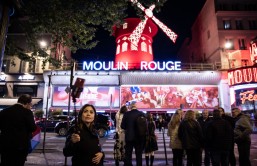A latest study shows that autistic children might be disinterested in socializing because their brains generate more information in the resting state.
The researchers found that the brains of autistic children produce on average 42 percent more information at rest than the brains of normal children. This might explain why autistic children do not mix well with others.
"Our results suggest that autistic children are not interested in social interactions because their brains generate more information at rest, which we interpret as more introspection in line with early descriptions of the disorder," Roberto Fernández Galán, PhD, senior author and associate professor of neurosciences at Case Western Reserve School of Medicine, said in a news release.
For the study, the researchers used magnetoencephalography to record brain activity in the children with the condition. They found that the autistic children's brains at rest generate more information than non-autistic children.
They also found the interactions between brain regions, such as the brain's functional connectivity, determined the inputs to the brain in the resting state allowing them to interpret the children's introspection level.
"This is a novel interpretation because it is a different attempt to understand the children's cognition by analyzing their brain activity," José L. Pérez Velázquez, PhD, first author and professor of neuroscience at University of Toronto Institute of Medical Science and Department of Pediatrics, Brain and Behavior Center, said in a statement.
"Measuring cognitive processes is not trivial; yet, our findings indicate that this can be done to some extent with well-established mathematical tools from physics and engineering," he added.
The findings are published in the journal Frontiers in Neuroinformatics.








